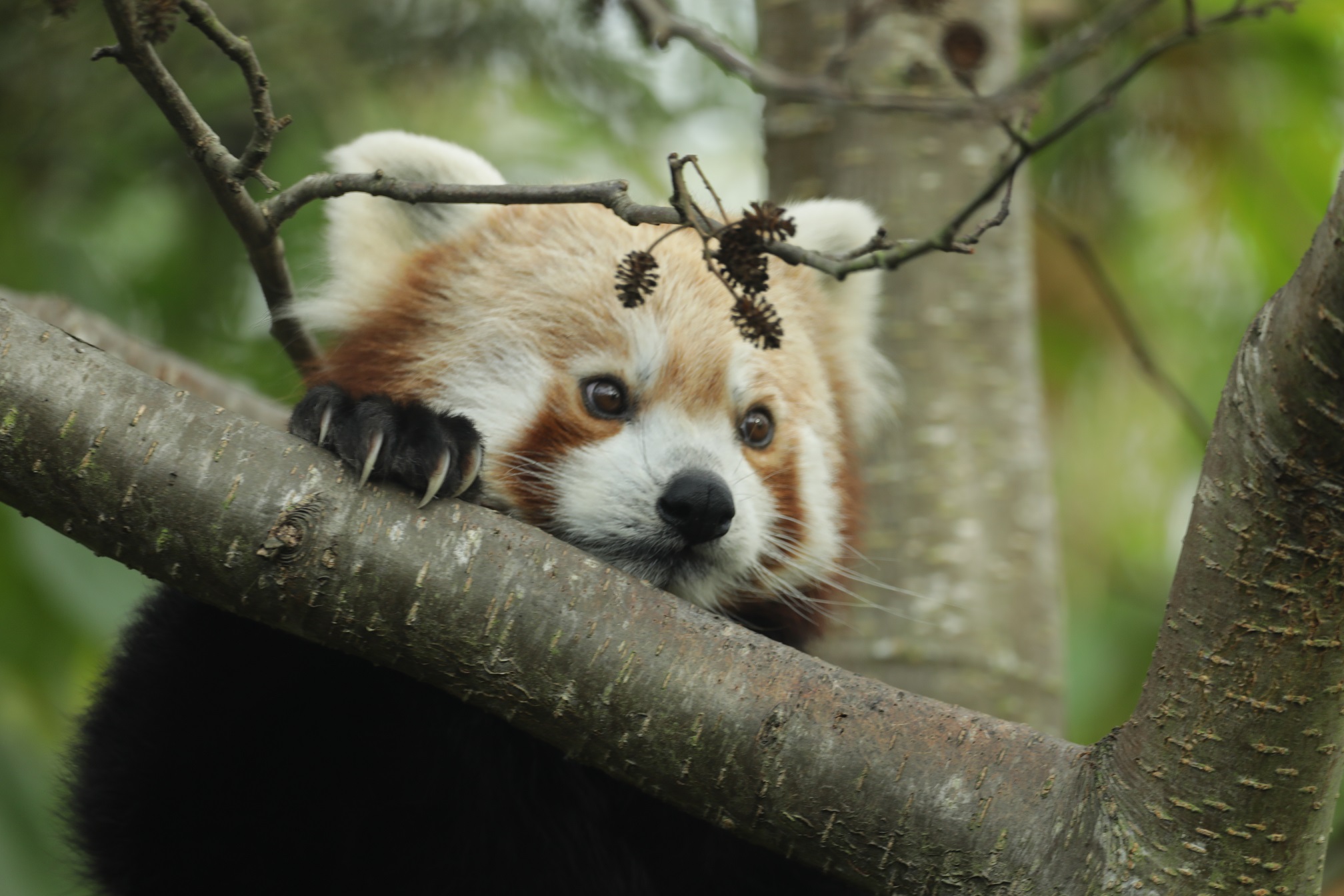Looking back at an exciting year at Highland Wildlife Park
Posted 13 Jan 2025

I can’t believe it’s time again to look back at the past 12 months, but 2024 has been a brilliant year for our wildlife conservation charity and Highland Wildlife Park.
We started off the year with the park joining the World Association of Zoos and Aquariums (WAZA).
RZSS has long been a part of the global zoo community and the park joining WAZA reflects our charity’s dedication to high standards of animal welfare, wildlife conservation and inspiring people to protect, value and love nature.
Just before Valentine’s Day 16 wildcats were paired up for the third consecutive breeding season in the Saving Wildcats conservation breeding for release centre, off-show at the park.
The birth of kittens was another critical milestone, demonstrating how integral zoos are in restoring threatened species.
At the end of February our now famous Japanese macaque, Honshu, captured the attention of people around the world when he took an impromptu holiday from the park.
After being caught, he took up residence at Edinburgh Zoo with three other males from the troop.
It didn’t take long for him to step up as the alpha male of the troop of juveniles who have turned their new space into their own bachelor pad.
In March HRH The Princess Royal visited the Saving Wildcats project. Our charity’s royal patron heard from the team responsible for restoring the Highland tiger to Scotland, and the work they do to breed the species for release, mitigate the threats the cats face, and monitor their progress in the wild.
April brought exciting news for invertebrate fans, with the first ever release of threatened dark bordered beauty moth eggs.
Some 750 eggs were released into a specially selected site in the Cairngorms National Park as part of the Rare Invertebrates in the Cairngorms (RIC) partnership.
Invertebrates, like dark bordered beauty moths, play important roles in ecosystems.
More invertebrate success came in the form of 20 medicinal leeches hatching at a specially designed facility at the park.
This was only possible thanks to pioneering work done in 2023 to identify, retrieve and breed a group of the leeches which are rare in the UK and especially so in Scotland, where they are only found at three sites.
If this success continues then eventually, we hope to have enough healthy leeches to begin releasing them into the wild and start new populations in suitable lochs around the country in partnership with our colleagues from Buglife and Species on the Edge, in consultation with local communities close to release sites.
It was a great year for births at the park, with two adorable Eurasian elk twins named Pipit and Finch making a big impression on visitors.
Later in the year they were joined by the first ever vicunas to be born at the park, a female named Cusi and a male named Tupac. The youngsters are doing well and bring our herd up to seven.
In the summer we launched Universal Credit discounts to enable more people to experience the benefits of being close to nature.
Access to green spaces can have enormous physical health and wellbeing benefits so we were thrilled to see 23,000 people take up the offer.
Many people have told us that they would not have been able to visit without this offer because of the cost-of-living crisis.
The stories we have heard about children and even adults visiting for the first time have been incredibly touching.
Thank you to our wonderful local community for your support throughout the year, we look forward to welcoming you to the park in 2025.
David Field, RZSS CEO

